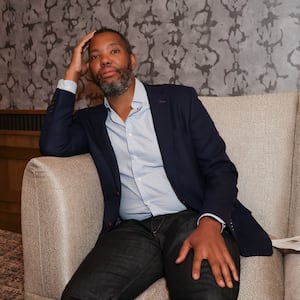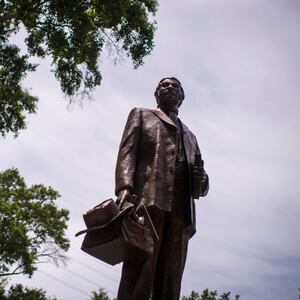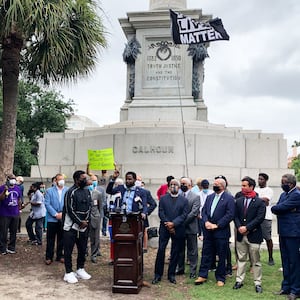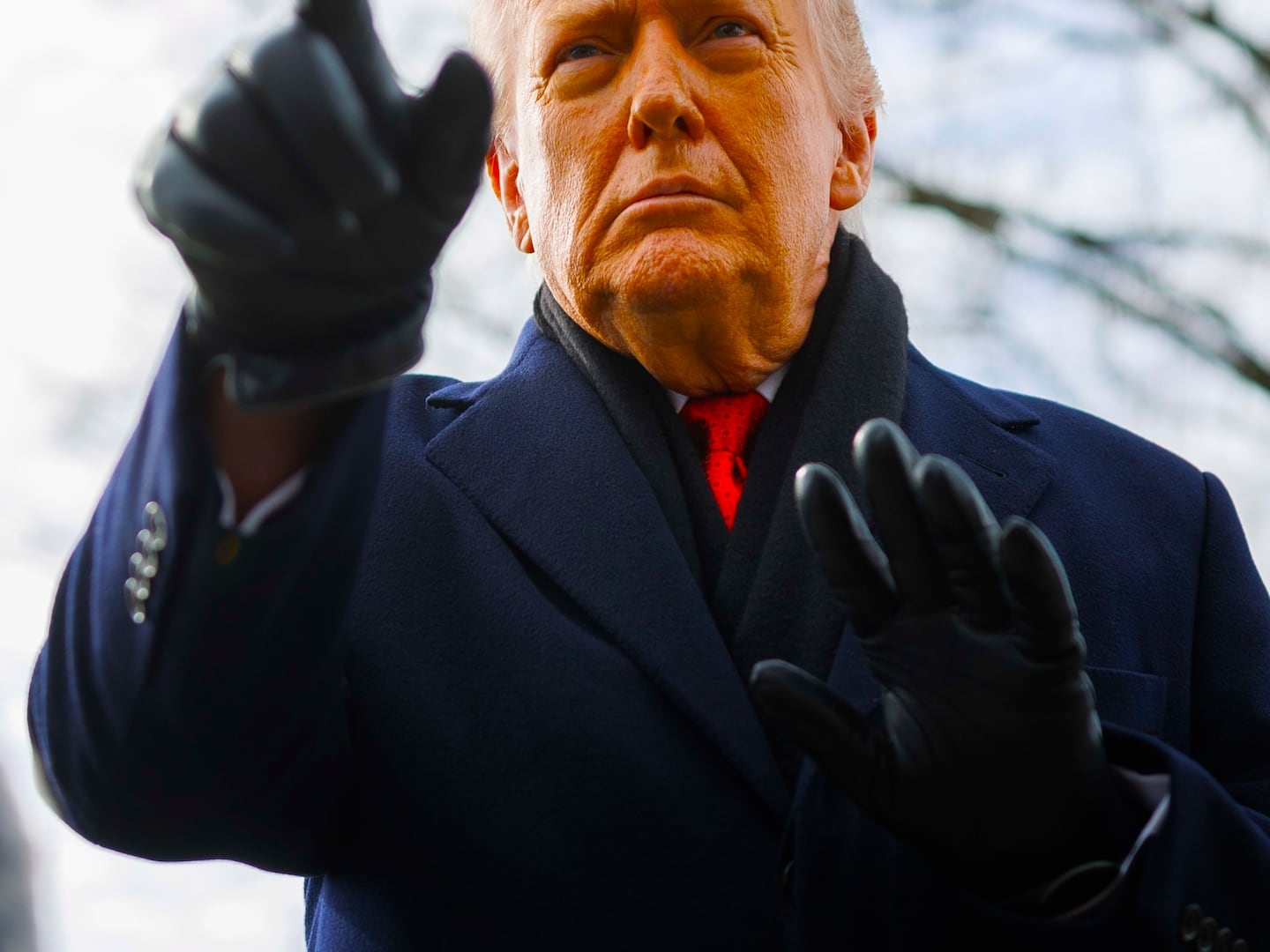A war on public education has erupted throughout the country with banned books being the subject of school board meetings, contentious social studies, and history lessons stoking the ire of parents and community members.
South Carolina, in particular, has been in the spotlight since writer Ta-Nehisi Coates showed up at a school board meeting where his book Between the World and Me was under scrutiny from ultra right-wing critics in a district outside Columbia. Then, staff members in Charleston claimed their district engaged in racist hiring practices with Black employees and applicants.
In 1868, Robert Smalls, a formerly enslaved Black man and Civil War hero, introduced the idea of a free public school system during the South Carolina Constitutional Convention. It was the first of its kind in the U.S.
However, the creator of free public education has been ripped from history books and practically forgotten.
Finding Freedom: The Journey of Robert Smalls, produced by the Charleston Gaillard Center, is an attempt to resurrect Smalls’ placement in history books within an education system that he had a major hand in influencing.
As a nonprofit arts organization, the Gaillard serves “as an anchor cultural institution that uses its dynamic performances, robust education programs, and community engagement initiatives to create connection, confront challenging issues, and bring people together for celebration, commemoration, and exploration,” according to the center’s website.

A dress rehearsal for the production, Finding Freedom: The Journey of Robert Smalls, produced by the Charleston Gaillard Center.
Photo by Amos Adams, Courtesy Charleston Gaillard CenterThis past week, the center presented a theatrical production of Smalls’ life, including musical selections, elements of the Gullah-Geechee culture that is so crucial to the South Carolina Lowcountry, and held a panel of speakers—including a descendant of Smalls—to reclaim the man’s legacy.
“You hear about Robert Smalls in a number of different contexts,” Smalls’ great-great-grandson, Michael Boulware Moore, told The Daily Beast. “Sometimes, he’s ‘Captain.’ Sometimes, he’s ‘General’ because he was a major general in the South Carolina militia. Sometimes, he’s ‘Congressman.’ I grew up hearing about ‘Grandpa,’ about the human being. Obviously, also learning about all his exploits; all the ways that he contributed to the world, our country—certainly, and to South Carolina.”
Moore, a writer and Democrat currently running for South Carolina’s U.S. congressional seat, said he learned some historical elements about his ancestor from his family and a small number of books at local bookstores—but not while in school.
“I heard about my great-great-grandfather because I grew up with his grandchildren. My grandmother was Robert’s granddaughter,” Moore said. “I had some sense of [him being a big deal]… but it was conflicted by the fact that nobody else knew about him, and I didn’t learn about him in school.”
Dr. Jessica Berry, a Lowcountry native and the Gullah-Geechee consultant for Finding Freedom, said she had a similar experience in school.
“I don’t remember ever learning anything about Robert Smalls when I was in school,” she told The Daily Beast. “That name was never talked about, what he did, none of that.”
Finding Freedom director, JaMeeka Holloway, admitted that she didn’t know about Smalls until she was contacted to work on the production.
“I was just incredibly blown away. I had not heard anything about Robert Smalls,” she said. “I think that just really fueled the fervor in which I just really dived into research.”
Historian Damon Fordham, who assisted with Finding Freedom, blames the erasure of Black American history on the fall of Reconstruction and the United Daughters of the Confederacy’s involvement with the early stages of public education.
“I learned more in the library than I did in the classroom,” Fordham said in an interview with The Daily Beast, explaining that much of his digging began with historical articles in Ebony Magazine.

Portrait of Robert Smalls, a pilot who, on May 13, 1862, seized the CSS Planter from Charleston, South Carolina, and delivered it to the United States Navy.
Corbis via Getty ImagesNot only did Smalls initiate free public schooling, but he started South Carolina’s Republican Party and attempted to prevent the state from enacting segregation laws as part of its constitution. But he is probably best known for surrendering a Confederate ship full of supplies to Union armies during the Civil War as an enslaved man, providing Union troops with Confederate battle secrets, and convincing President Abraham Lincoln to allow Black soldiers to fight on behalf of the Union—a major turning point in the war. The move provided major growth for the Union Army (adding nearly 200,000 men), and formerly enslaved Black soldiers were familiar with areas in the South in order to provide intel for the North.
“This is why we revere him,” Berry said.
“There was a lady named Mildred Rutherford, who in the early 1910s, she wrote pamphlets on what should be taught and what shouldn't be taught regarding the Civil War and Reconstruction,” Fordham explained regarding the inception of the United Daughters of the Confederacy. “The essence of it was that slavery had nothing to do with the Confederacy. Lincoln: bad. Jefferson Davis: good. The North was the cause of the Civil War and states’ rights and such, and basically everything the Confederacy did was good.”

An illustration depicting the Confederate gunboat Planter, which was run out of Charleston harbor by Robert Smalls as he freed himself and his family from slavery, 1862.
Interim Archives/Getty ImagesIronically, the story of the man who was the first major proponent of free public schooling was seemingly omitted from what would have been taught in those public schools.
“It really is outrageous,” Holloway, a native of North Carolina, said. “Just really thinking about the Daughters of the Confederacy, when they got together to sort of decide what would make it into the history books and what wouldn’t, just to really think about that lasting impact and how we are still trying to restore our stories because a group of white women kind of got together and decided this won’t be included.
“We’re still, now, dealing with the ramifications of that. It’s so disheartening in some ways, and then it also just feels there was so much more determination to make sure that the same sort of diabolical and meticulousness that white folks had in regards to keeping us away from our history that we also engage in illuminating our history with that much diligence, that much purpose.”
The United Daughters of the Confederacy did not respond to The Daily Beast’s request for comment by the time of publication.
“In my eighth grade history books, we were taught in South Carolina history classes that a klan was established to bring order to the South because the poor negroes lost their heads during Reconstruction,” Fordham said, adding that white supremacist history was further spread through books by Mary Simms Oliphant from 1917 to 1984.
“Of course, when you don’t know the past, you’re condemned to repeat it,” Fordham said. “In this case, Fort Sumter [and] January 6.”
Fordham explained that history class was also considered a “low-priority subject” taught by athletics coaches or people who were not qualified.
“They know good and well that the average American only knows what they are told,” he said.
Despite Smalls momentarily being overshadowed by white supremacist efforts to minimize his legacy, there’s a desire for Finding Freedom to be just the genesis of a historical re-emergence.
“I would love to see this play every year. I would love to just see it in different auditoriums, different school cafeterias, outdoor spaces,” Holloway said. “I just want Robert Smalls’ story to be on the lips of folks throughout this country because he really shifted the tide… Without [his] contributions, we would be in a different place.”
Fordham contended that Black Americans with knowledge of the past have the responsibility to share it.
“I think there was a desire for us to own our full story now,” Berry said, “and not necessarily the stories that were written about us.”









